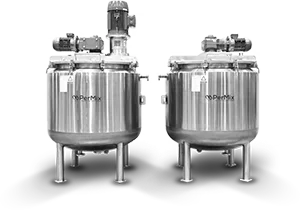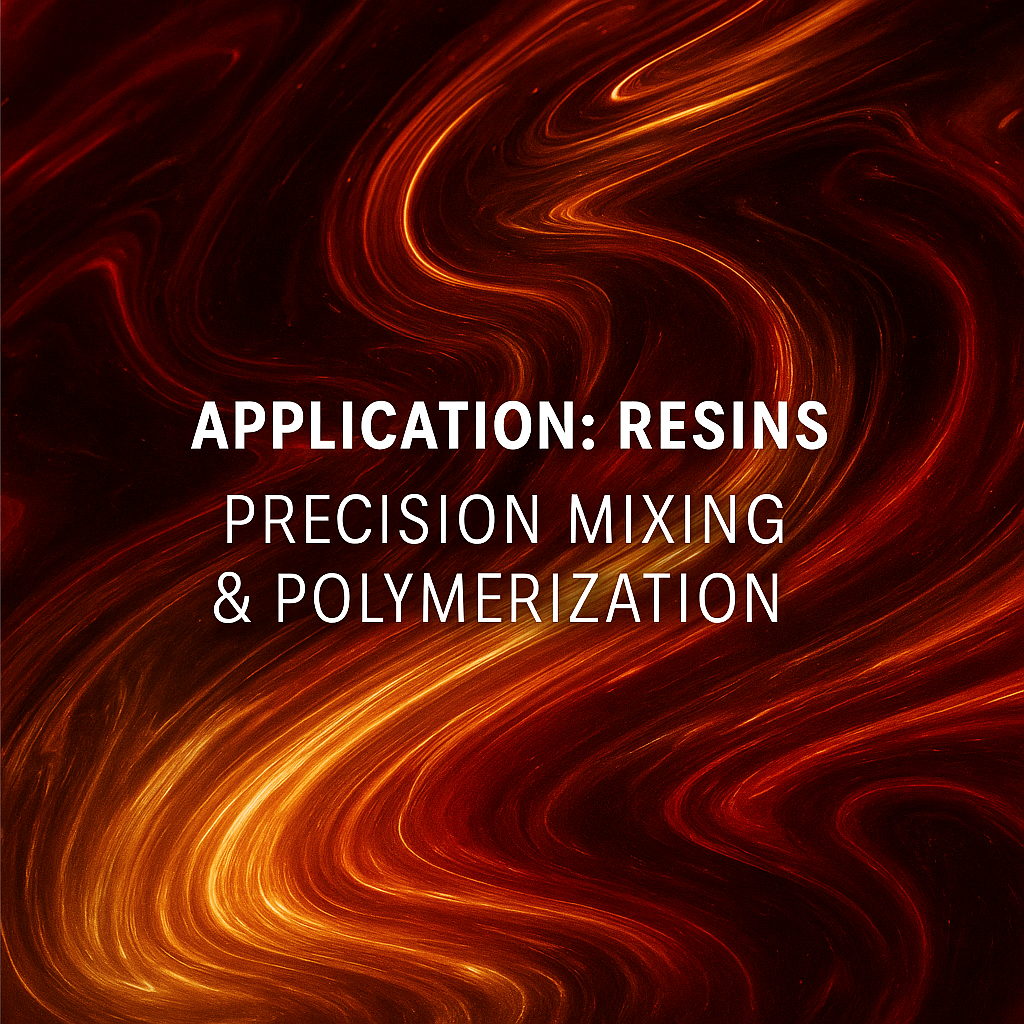Industrial Mixers UK
PerMix Applications



Resin manufacturing blends chemistry with mechanical precision. Whether creating synthetic polymers, epoxy systems, alkyds, or acrylic emulsions, resin processors face a daily balancing act: viscosity management, heat control, solvent handling, and batch uniformity.
PerMix designs and engineers complete resin mixing and reaction systems that deliver predictable quality across every step — from polymerization to dilution and finishing — with the flexibility to handle viscous melts, solvent-based blends, and waterborne formulations.
Every formulation has a unique viscosity curve, solid content, and exotherm profile — and PerMix mixers are designed to handle them all.
High-temperature reactions demand heat transfer efficiency, vacuum or pressure capability, and proper agitation to avoid localized overheating or incomplete polymerization.
PerMix Solution:
Once the base resin is synthesized, additives such as plasticizers, pigments, stabilizers, or crosslinkers are mixed in to achieve final properties.
Challenges: High viscosities, immiscible phases, and temperature-sensitive components.
PerMix Solution:
In many coating or adhesive applications, the base resin is diluted with solvents or reactive monomers. Entrained air and moisture can cause foaming and incomplete cure.
PerMix Solution:
Final steps include viscosity adjustment, color correction, filtration, and packaging. Every batch must meet reproducibility and stability standards.
PerMix Solution:
| Challenge | Result if Uncontrolled | PerMix Solution |
|---|---|---|
| Exothermic Reaction | Gelation or degradation | Jacketed heating/cooling + PLC control |
| High Viscosity | Poor mixing or incomplete dispersion | Sigma or Double Planetary Mixers |
| Volatile Solvents | Fire risk or VOC loss | Explosion-proof construction + condensate recovery |
| Shear Sensitivity | Polymer chain breakage | Low-shear ribbon or anchor agitators |
| Foaming & Air Entrapment | Voids, poor finish | Vacuum operation + deaeration systems |
| Cross-Contamination | Off-spec batches | CIP / WIP systems and polished stainless steel |
PerMix offers a full range of construction materials to match chemical compatibility and corrosion resistance:
All PerMix resin systems can be supplied with:
Q: Can PerMix mixers handle high-viscosity epoxy resins?
A: Yes — our Sigma Mixers and Double Planetary Mixers are built for viscosities up to 2,000,000 cP, with jacketed and vacuum options.
Q: What about water-based acrylic resins?
A: The PerMix Plow Mixer or Inline Emulsifier efficiently disperses waterborne systems while maintaining low shear for stable emulsions.
Q: Can solvent systems be processed safely?
A: Absolutely. PerMix offers ATEX/ExP-certified mixers with inert gas purging and closed-loop condensation recovery for volatile materials.
Q: Do you provide complete resin processing skids?
A: Yes. PerMix engineers turnkey systems with integrated controls, jacketed tanks, vacuum/condensate systems, and product transfer solutions.
Resin manufacturing demands control — of temperature, viscosity, atmosphere, and chemistry. With decades of experience designing vacuum, pressure, and explosion-proof mixers, PerMix stands apart in versatility and engineering depth. Whether you’re producing small-batch R&D polymers or scaling industrial resin production, PerMix delivers the consistency and reliability that define perfect mixing.
